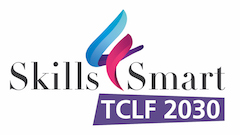Covid-19 impact on supply chain and business – how to reinvent businesses after Covid-19
COVID-19 has disrupted supply chains, with challenges waiting on every step on the way: sourcing raw material for production and logistics, manufacturing during plant shutdowns and in respect to social distancing rules, reduced warehouse operations, transportation restrictions and many others
This gives a chance to create new business models and integrate the value organizations provide into a new societal landscape. It is time to transform businesses by including new approaches as well as technology and responsible leadership.
What was the impact of Covid-19 on the value chain?
COVID-19 had an impact on the following:
- choice of suppliers – due to the quarantine restrictions as well as due to increase concerned of consumers regarding traceability;
- manufacturing – due to the shutdown of factories and lack of raw materials;
- logistics – due to the travel restrictions as well as additional health regulations established internally and between EU-27 and third countries;
- sales – as shops were closed for several months and most of consumers started purchasing goods online;
- people – because of the shift from on site to remote working.
What will happen in the near future?
Mentioned above changes will have an impact on the supply chain and on the business as a whole.
Mentioned above changes had and will continue to have an impact on the supply chain and on the business in the TCLF industries, in particular via:
- Changes in consumer behavior, that will affect what, where and how goods and services are delivered;
- Cost structures, that will move from more fixed to more variable, with investments in accelerating digital transformation and building up skills as well as increasing the sustainability aspects of production;
- Visibility and analytics, which will be essential for companies to focus efforts, drive scenario planning and rapidly respond to changing consumer demand;
- More reliable and flexible supply chain to shift in response to changing impacts across the supply ecosystem because of unprecedented events.
A European path for re-invention
The disruption caused by the pandemic is both a threat and an opportunity for EU TCLF business, which has a chance to close the competitiveness gap and recover at pace. To seize the opportunity, entrepreneurs and managers should invest in innovation, technology and people with right skills and knowledge to reinvent how Europe does business.
(Re)opening of the TCLF sector, presents an opportunity—and a need—for many companies to invest in new competences and that includes to be more green and more digital, data-driven, and in the cloud as well as to have more variable cost structures, agile operations and automation or to create stronger capabilities in e-commerce and security.
What should managers do to re-invent their companies?
First of all, managers should put people at the center by investing in skills development with a focus on green and digital ones, as well as assuring transparency on working opportunities and career pathways. Apart from that, employers should be able to identify leaders who can lead the charge and coach other employees. Physical space should be rethought to encourage collaboration, teamwork and creativity as well as to assure more flexible working patterns.
Secondly, employers should accelerate digital transformation by investing in transformative technology, in order to create an elastic cost structure and intelligent value chains. Moreover, operations should be more agile to assure flexibility and rapid response, with transactional processes should be more digital, while focusing on value-led, proactive operations.
Finally, employers should support sustainability. Sustainability must be integrated fully into strategy, operating models, processes and technologies to deliver sustainable growth. This can be achieved by investing in low-carbon technologies and creation of new responsible value chains, with trusted, net-zero and circular end-to-end value chains.
AUTHOR
Desiree Scalia, CIAPE
LINKS
https://youthreworking.eu/gocircular/wp-content/uploads/2021/03/Support-services.pdf
https://www.accenture.com/us-en/about/company/coronavirus-european-competitiveness-and-innovation


